The Liberal Arts Muse
Aristotle described the liberal arts as liberating because subjects like history, philosophy, science, and literature give students the freedom to think independently and ask complex, abstract, questions. We asked Berklee students to talk about how liberal arts classes have contributed to their development as musicians.
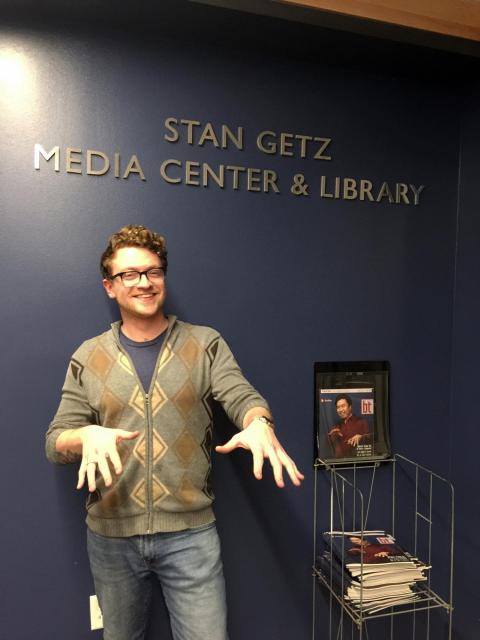
Andrew Schroeder ’20, Madison, Wisconsin; Music Business
“Since taking Psychoanalysis in Literature, I’ve learned not to be dismissive of artists or genres that don’t immediately fit my own taste. Every iteration of psychoanalysis was groundbreaking and momentous, and each new idea was examined, reexamined, criticized, and revised for the next generation. We now might scoff at Freud’s initial theories just as we cringe at Pat Boone’s version of ‘Tutti Frutti,’ but understanding the role of a new idea or new music in creating today’s culture is critical.”

Tariq Maduro ’20, Cane Garden Bay, Virgin Islands; Music Production & Engineering
“Politics and law have always interested me, so I took a history class that focused on the U.S. Constitution. Being able to look back at history and the philosophies and ideas that inspired the laws that govern the U.S. was very significant. It’s important for young people like me to understand rights, laws, and how the justice system works.”
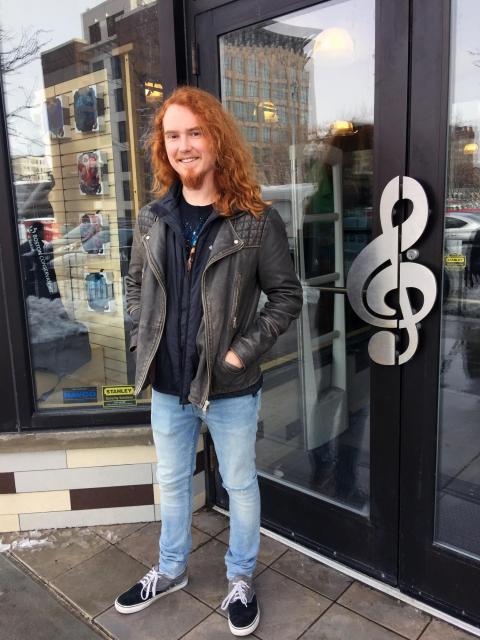
Jack Dinger ’19, Park City, Utah; Professional Music with Concentrations in Music Business/Management and Performance
“Ghosts, Specters, and Spirits was a literature class that taught me how to analyze poems and stories, a skill I could then easily apply to music listening. I found myself asking deeper questions about music and lyrics when applying the methods of analysis we learned in class. We studied spooky and uncanny literature, some centuries old, and for my final project, I composed a song based on the beautiful poem ‘Ghost Tango.’ That project was the catalyst that inspired me to start the Recording and Production minor. Being able to produce a song that I composed and watch it come to life was incredibly intoxicating, and I owe that passion to a liberal arts class about supernatural literature.”

Marina Vinogradova ’18, Moscow, Russia; Vocal Performance
“Studying U.S. history helped me understand why important concepts in music and the visual arts emerged at certain moments in history, starting with the Jazz Age. Americans returned from World War I eager to forget all the dreadful moments of war, and wanted to escape into jazz culture and dance parties. Film also became a popular diversion. And women’s fashions changed once they had the experience of working in wartime factories. History shows us that people had different feelings, needs, goals, and priorities depending on the times they lived in.”
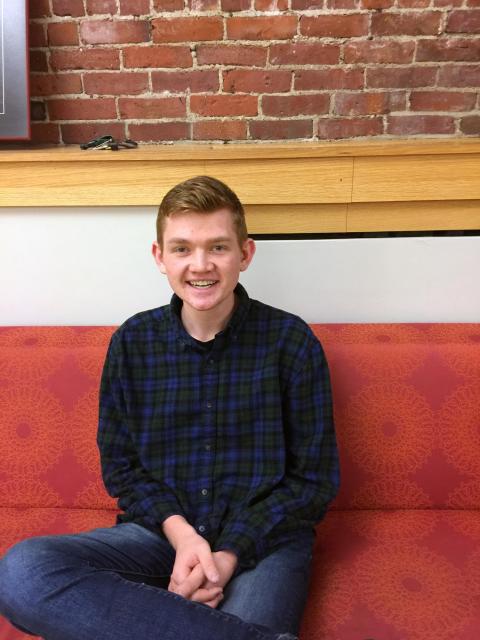
Thomas Gaumer ’19, Portland, Oregon; Jazz Composition and Electronic Production & Design
“Scandals and Vandals, an art history class about art theft and forgery, challenged me to look at music from a perspective not rooted in our core music curriculum. The question we continually asked was, ‘Why do we care about art? Why does art matter so much that there is value in stealing, vandalizing, and forging it?’ This begged the question, ‘Why do we care about music?’ I was constantly challenged to reevaluate my motives for creating music. Is it for the money? For the sake of creativity? As we examined numerous art thefts, we saw that the quality of a painting—in terms of the objective technical skills of the painter—did not translate into the painting’s market value. The ‘best’ art was not always the piece with the highest market value.”
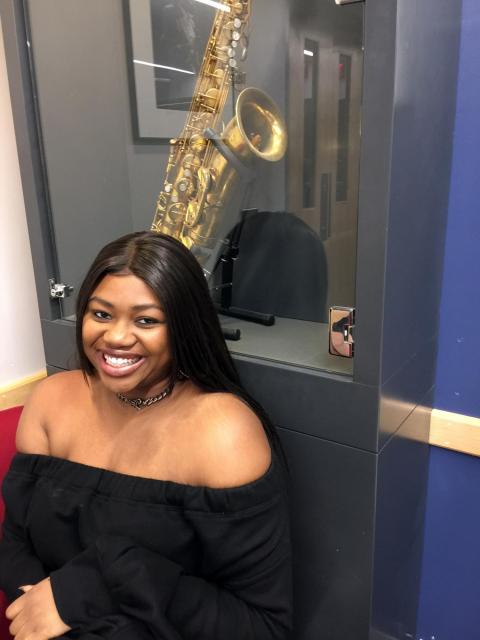
Anisa K. Abrams ’19, Newark, New Jersey; Music Business/Management
“I’ve always had a fascination with history and music history, which encompasses everything and everybody. Music is the purest form of oral tradition, and music history is genuine and emotional, the story of common people. You can listen to ‘The Message’ by Grandmaster Flash and the Furious Five and understand exactly what was going on in the inner city in 1982. It is our purpose as musicians to document the emotional state of the American people, which is based on the political, economic, and cultural events of the times they live through.”
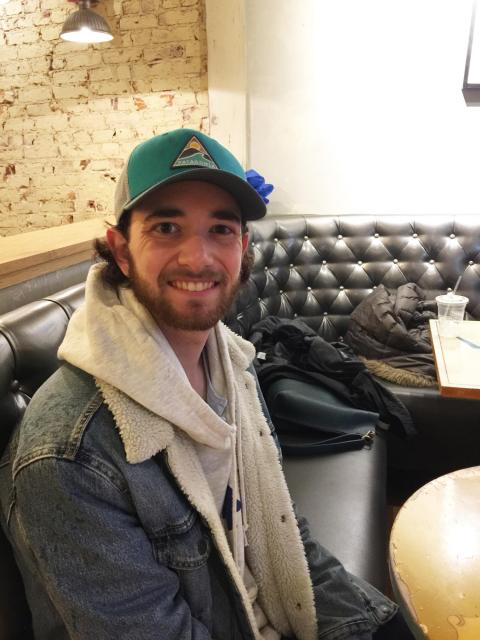
CJ Miller ’18, Jackson, New Jersey; Film Scoring
“Music classes helped me develop my proficiency as a writer and performer. Liberal arts classes helped me understand why I really want to make music: because we must create in order to provoke change. Music has always been closely related to politics, and for anyone with a creative mind, it’s important to understand how the world works. So liberal arts classes have not only been my favorite classes, they’ve also been the most important in my growth as a musician.”
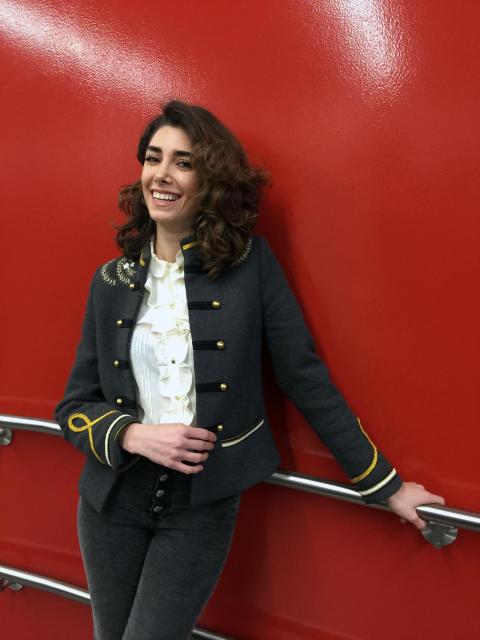
Nano Raies ’21, Homs, Syria; Professional Music with a Concentration in Performance, Songwriting, and Arranging
“Music Collaboration and Arts showed me that it’s possible to make sounds out of almost anything. I discovered my love for creating scenes involving acting, dancing, and music, and learned how to find inspiration from a painting or other art form and turn that inspiration into a piece of music.”




